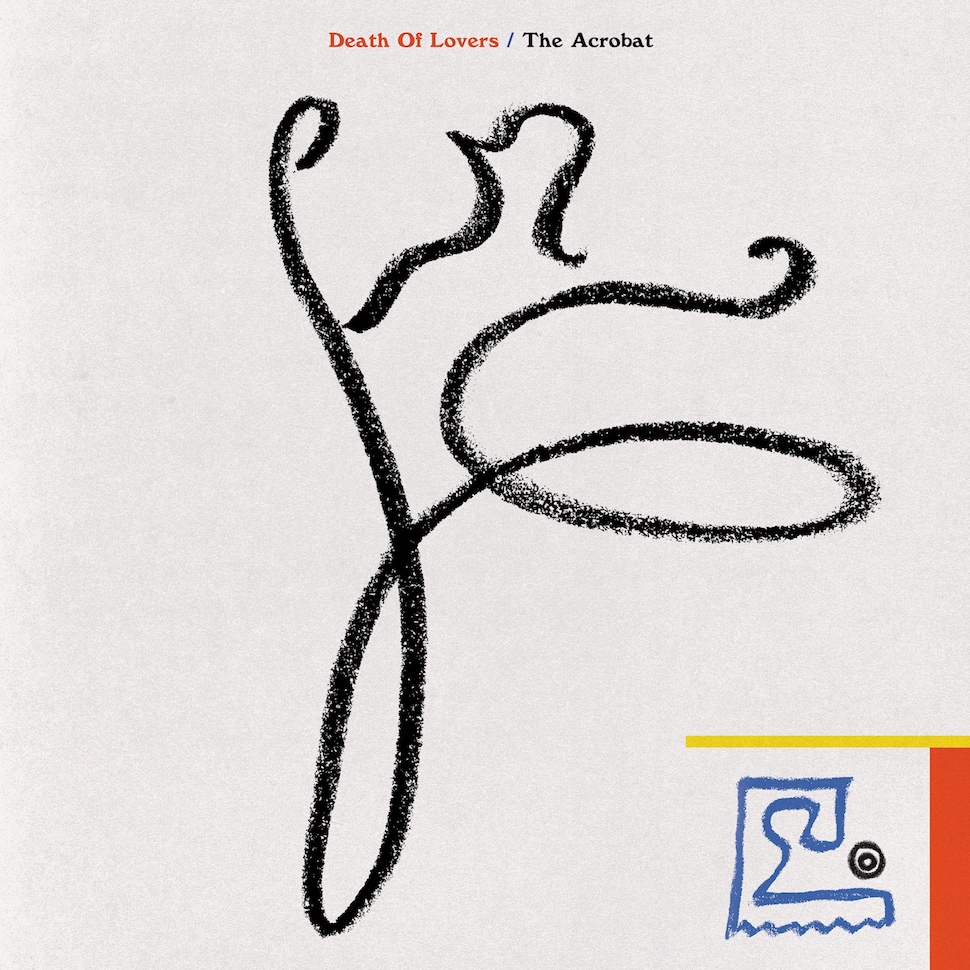Too goth to be emo and too pop to be doom, gloom unit Death of Lovers manage to avoid being sucked into a metal rabbit hole or being lumbered with too many prissy indie clichés, which lets the music do the talking without needing to know whether they wear too-tight leather jackets or prefer the freedom of a vintage armless denim. They have previously been perfectly summed up thus, “members of Nothing and Whirr bonded over a love of Sisters of Mercy and The Cure, and decided to start jamming together” which, in a sentence, allows me to concentrate on the music too. And The Acrobat is pure goth compared to the punky/shoegaze blends on debut EP ‘Buried Under A World of Roses’. The title evokes the porcelain beauty and graceful risk of our gymnastic protagonist, a beautiful routine yet never more than one slip from danger or death so the usual goth themes of going out but going out alone (‘The Lowly People’) and tragic love (‘Perfect History’) generate the uneasy opposing truths that is so, well, goth; while the more polished sound and brittle vocals throughout recreate the fragile ambience musically as in our acrobat metaphor.
As fade-ins go ‘Orphans of the Smog’ is a great opener and the addictive bassline and vocal layering wash over you in a (very) early-Charlatans sort of way. It is the nearest thing to anything on the Buried… EP if we are looking for quick and crude soundbites and comparisons. Similarly ‘Ursula’, with its chiming guitars laid over a repetitive Moroder/I Feel Love style backing track is a highlight, or the Smiths vibe of ‘Quai d’Orsay’ but the overall sound is often too derivative to ever be ground-breaking, with one foot at all times set firmly in 1984. The slow building bass-led New Order blueprint is a constant throughout. Hence, The Acrobat is often very one paced but on ‘Divine Song’ the band almost take advantage of themselves as the sparse, slow, drawn out sprawls and an incredible drop at the end of the long intro creates an edginess that is impossible to deny as the song plays out.
It’s a difficult album at times, you need to really immerse yourself in its nuanced charms and it’s similarly difficult to block out the dated goth melodrama (the obligatory sax solo appears at last on closer ‘The Absolute’) but on repeat listens it works in its entirety whereas there is less immediate hooks nor any obvious singles. Much like the acrobat’s airborne ballet, fluid and precise from a distance but painstakingly crafted and perfected the closer you look. Or you could just put it on while you silently watch The Lost Boys.




